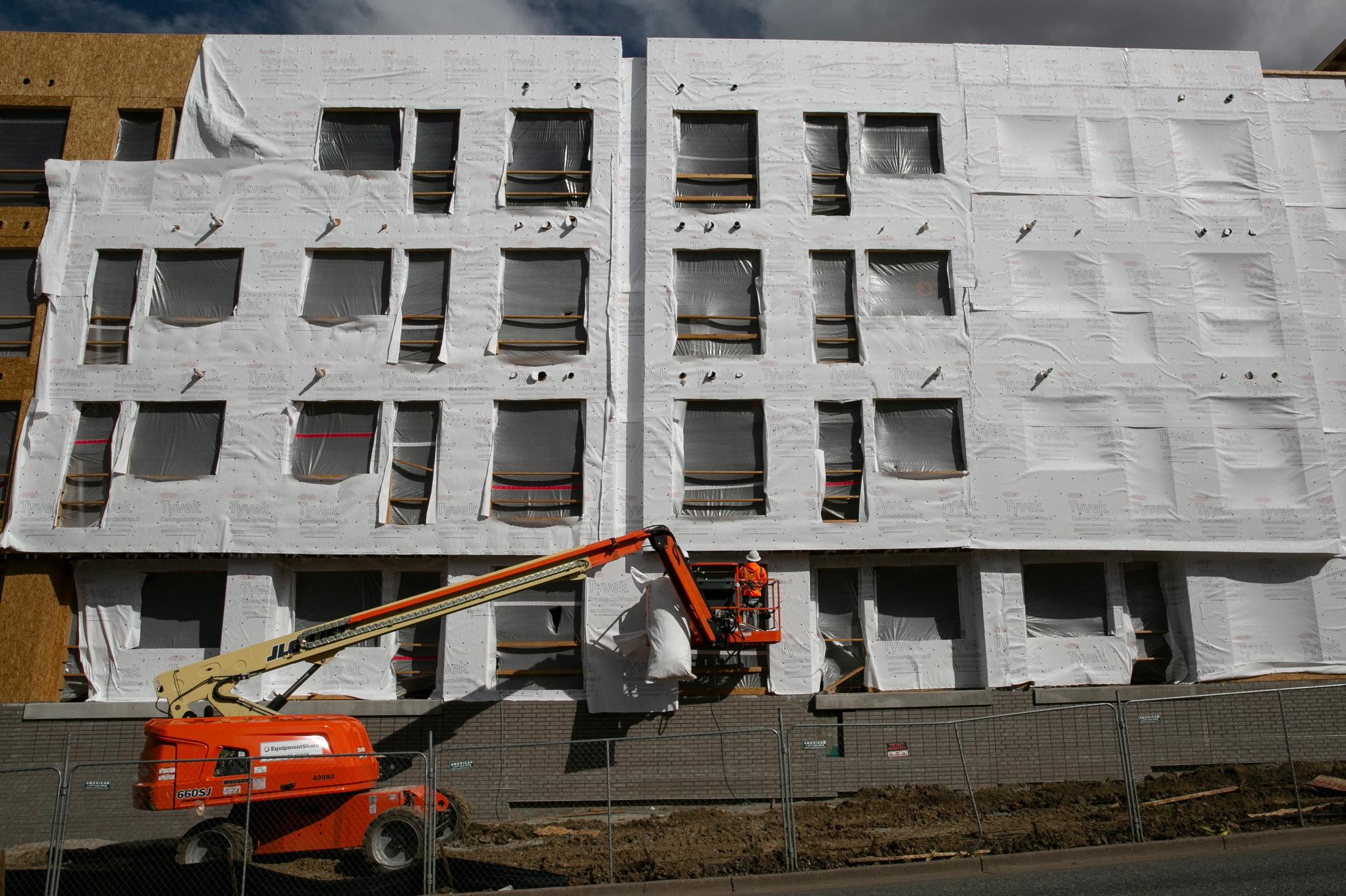
A new law in Colorado will allow cities to require the construction of more affordable housing, but it still includes some limits on their powers.
Signed by Gov. Jared Polis last week, HB21-1117 says that municipalities can specifically require that new developments include a certain number of units that will have more affordable rents, though the law doesn’t define what is “affordable.”
Municipalities can decide whether or not to use this new power, also known as inclusionary zoning. If they do, there’s a catch: They also must provide at least one other option to the developer. For example, instead of building affordable units, a developer might be allowed to pay a fee instead. And cities that want to require new affordable units also have to embrace other policies that make it easier to build housing.
Housing prices in Colorado have steadily climbed for years, especially in urban and mountain communities. The state needs at least 100,000 more rental homes for its lowest-income renters, according to the National Low Income Housing Coalition.
“No one claims it's the solution to every problem, but it could be important for those communities facing a lot of development and growth,” said Denver city council member Robin Kniech, a supporter of the new law, at a recent committee hearing.
Cities like Denver and Boulder have used similar policies, but the concept hasn’t been strongly embraced in Colorado. That’s because of the state Supreme Court’s “Telluride” decision in 2000, which undermined the authority of local governments to regulate rent in new construction. Under “Telluride,” cities have been more cautious about setting affordability requirements, experts said.
This new law opens the door for cities to use this power more broadly. But if they want to use this option, the law says they also have to embrace policies that allow for more development in general.
For example, a city that wants to control rent on new development might also promote denser development near transit, allow multiple units on a single-family lot, or the city might reduce the requirements to build new parking spaces, among other options.
“I am particularly pleased that this bill includes incentives for local governments to modify their zoning laws to promote density and housing development,” Polis wrote as he signed the bill into law.
Housing advocates have been pushing for years for the change, saying it could unlock a new approach to affordable housing. But developers and others have warned that the cost of providing lower-rent units will simply be passed on to other residents.
“The question is, does inclusionary zoning come with public assistance or subsidies for the builders?” said Teo Nicolais, a real estate investor and instructor at Harvard Extension School who works in Colorado, about a similar bill that was considered in the state legislature last year.
A study of inclusionary zoning policies by the Urban Institute found that some were successful in creating affordable housing units, but there has been debate over whether they cause developers to raise prices on other units — or even cut back on production. Various studies have produced mixed results.
“The type of impact these laws have appears dependent on the design of the policy, the neighborhood location, and the housing market in the area (where they are implemented),” the Urban Institute authors wrote.
In his letter, the governor said that inclusionary policies could indeed create higher overall housing costs, even as they lead to more affordable units. But he argued that would be offset by the law’s other components, which would encourage cities to allow more housing construction in general.
“Therefore, on the whole, a city that aggressively implements the upzoning reforms in this bill can still reduce the overall cost of housing despite the use of inclusionary zoning,” he predicted.
The law takes effect this fall.









